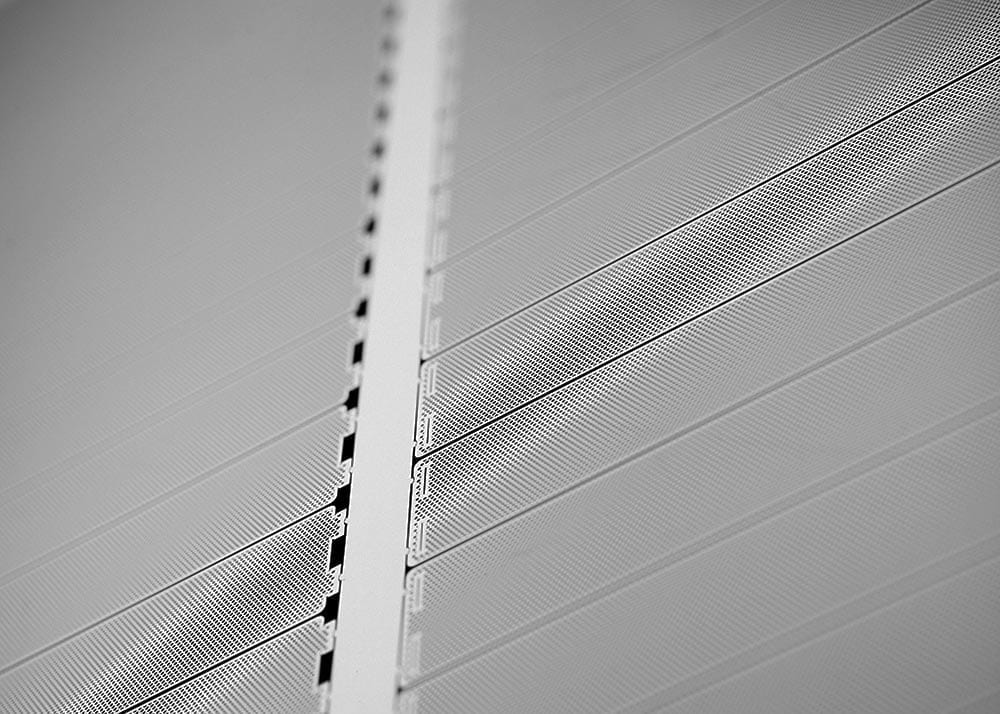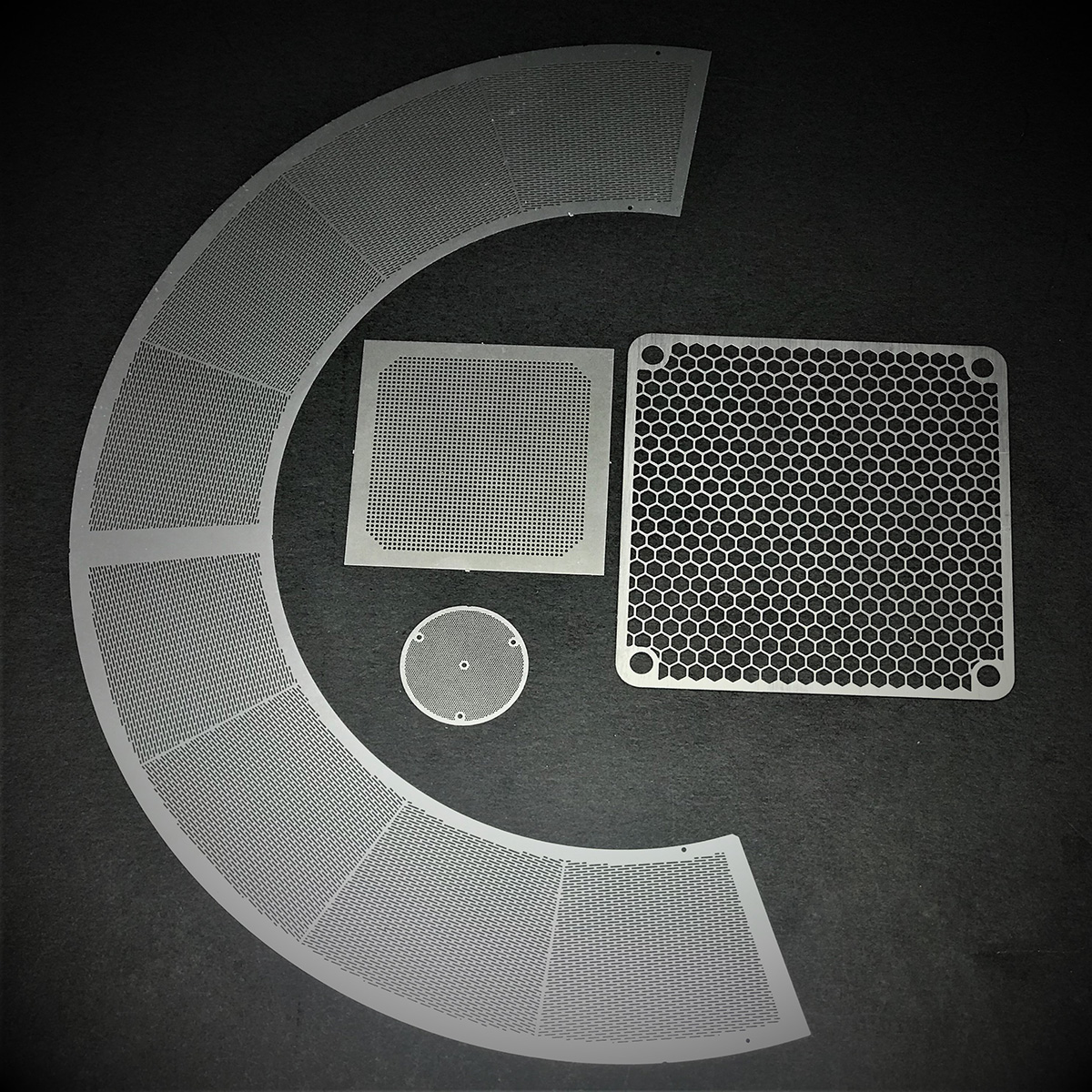Stress-and burr-free precision mesh for medical industry uses a nanosecond or picosecond pulse laser. It is to irradiate the surface of the work piece to clean, the surface of the work piece, after absorbing laser energy, rust, dirt, coatings, oxides or films vaporize. This is one of the effective ways to remove substances on the surface of materials.

At present, the common surface cleaning methods of materials include:
Their application is greatly limited due to the requirements on environmental protection as well as requirements of machining accuracy. Stress-and burr-free precision mesh for medical industry has certain advantages in different industries.
The main application industries is easy to mention as follows:
The laser can clean the mold without contact, safely and accurately protect the mold surface, clean the dirt particles below micrometer size that other traditional cleaning methods cannot remove.
Using a laser rust removal machine is an effective and high-quality rust removal method that does not pollute the environment.
The precision engineering industry often needs to remove esters and mineral oils common to lubricate and prevent corrosion on parts. Previously, to remove this stain, we needed to use chemical methods; but this cleaning today still leaves residues that are difficult to remove.
Meanwhile, the application of a laser rust remover can completely remove the esters and mineral oils while not damaging the surface of the part.
The laser causes a vapor explosion of the thin oxide layer on the surface of the material. Moreover, it is to form a shock wave, thereby removing dirt instead of mechanical interactions and using stress-and burr-free precision mesh for medical industry.
Currently, cleaning steel rails before welding requires the use of a grinding wheel and sandpaper. This leads to damaged substrate material, large residual stress exists. Every year, the railway repair industry has to consume a large amount of grinding wheel consumables. Similarly, it is costly as well as unnecessary dust pollution.
Meanwhile, stress-and burr-free precision mesh for medical industry with a rust remover is a type of technology. Moreover, it effectively cleans the surface. Hence, it eliminates welding defects, and improves the stability and safety of road operation.
Airplane paint remover
The surface of the aircraft shell must be repainted after being common for a period of time. Moreover, it completely removes the old paint layer before replacing the new paint. Chemical wiping is the main paint removal method in the aviation sector.
Moreover, this method causes a large amount of chemical waste, complicated processes, and environmental pollution. In particular, this method cannot remove paint locally.
Aircraft repair
Meanwhile, Stress-and burr-free precision mesh for medical industry method can not only apply a highly automated processing line. Similarly, it effectively removes the paint on the surface of the aircraft's shell. Currently, this handheld laser rust remover has begun to apply to the maintenance of a number of high-class aircraft overseas.
Currently, sandblasting is a common method to clean ships. Moreover, this method causes serious smoke and dust pollution to the surrounding environment. Stress-and burr-free precision technology promises to provide an effective and non-polluting surface cleaning solution.
Stress-and burr-free precision mesh for medical industry technology is now widely common in weapon maintenance. Stress-and burr-free precision systems can be common to quickly remove rust and dirt, and can also be common for local de-rusting, or for automation in the cleaning process.
Weapon rust remover application
In addition, using the Stress-and burr-free precision method, not only has a higher cleanliness than the chemical cleaning process, but especially hardly damages the surface of the material.
Precision mesh with the common concept is all materials that people use in mechanical production to create products for life. So, can all materials become precision mesh? This also depends on whether the materials common to make the mechanical product meet the requirements of usability, technology and economy.
Only when the material satisfies the basic requirements can the Stress-and burr-free precision mesh for medical industry achieve reliability and durability under actual working conditions?
Precision mesh with the common concept is all materials that people use in mechanical production to create products for life such as machinery and equipment in industry, agriculture, and transportation. The concept of precision mesh is very broad, diverse and has relative properties.
The conveyor mesh is common as an element of industrial conveyors in the automotive industry, mining, chemical industry, food industry and other areas of production.
Woven stainless steel mesh, better known as the chain-link, has found wide application in mining and agriculture in the construction of critical facilities that have been damaged by corrosion.
Generally, we call them galloon, with zero cells, designed for water purification, air purification, drying, filtration of solutions and melts, oil and other liquids purification.
There are other materials such as metal, plastic, composite... not only common in mechanical production, but also essential in construction, electrical engineering, chemical industry, food. Each category is different material properties.
Stress-and burr-free precision mesh for medical industry mainly derived from three major groups of materials:
Materials are common in mechanics, to manufacture machine parts, tools, construction structures. These products are available in various shapes and sizes and have diverse usage requirements. Most are subjected to static, dynamic, cyclic loads and can be at low or high temperatures in different environments.

This factor determines the requirements and properties of precision mesh. These requirements can be summarized into two main types of requirements:
This requirement is mainly to reduce the difficulty of part fabrication. Technological properties of materials are understood as the ability to be machined by methods of casting, welding, machining by pressure, hardening permeability, cutting properties, etc. Technology is very important because it determines productivity and quality.
Economical requirements
This is an inevitable need of the product, the commoditization of the product, which requires the materials to make them at the lowest cost while the requirements for technology and use are satisfied.
